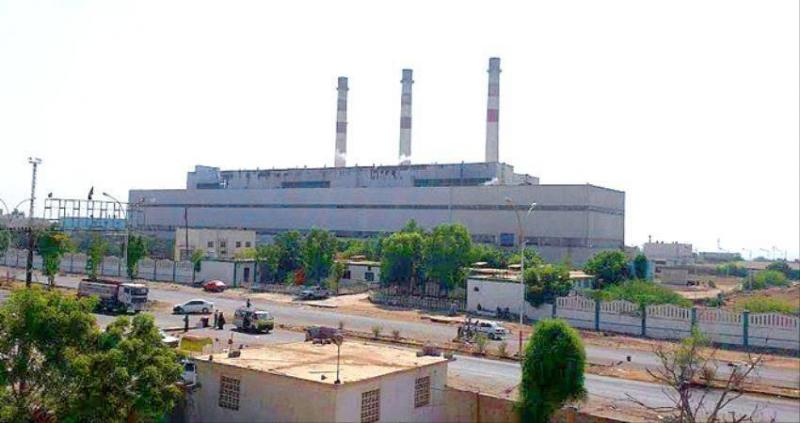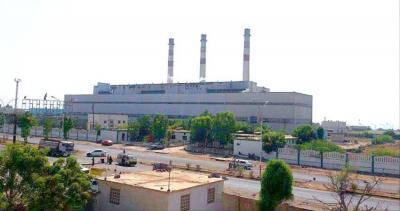The government electricity institution in the city of Aden, southern Yemen, confirmed the complete cessation of purchased generation capacity on Sunday due to the accumulation of financial debts owed by the Yemeni government to private power plants. The Aden Electricity Corporation expressed its "regret to the citizens for the decline in electricity service and the increase in hours of blackout." It stated that the corporation is making significant efforts to reach a solution with the rented energy companies in Aden to resume their generating stations and restore power stability as soon as possible.
A government official from the Aden Electricity Corporation told Reuters that the halt of purchased power plants has resulted in a loss of approximately 130 megawatts of generated power in the coastal city, which the internationally recognized Yemeni government considers its temporary capital amid a severe electricity supply deficit and extreme heat. The Aden Electricity Corporation states, "The electricity sector faces significant and accumulated challenges for years, and the electricity load rate in Aden has increased due to urban expansion and high population density, as the total energy required by Aden reaches 570 megawatts, while the plants produce less than 150 megawatts daily, corresponding to about 30 percent of the necessity."
Residents in Aden reported to Reuters that the hours of power outages reached seven hours on Sunday, receiving electricity for only two hours, compared to four hours in the previous period. Residents expressed their anger over the continued deterioration of living conditions and services, especially in the electricity sector, as summer temperatures rise above 40 degrees Celsius despite more than six years since Aden was liberated from the Houthi movement.
The companies rejected a letter of guarantee for their dues from the Aden governor, Ahmed Hamid Lamlas, as well as Prime Minister Maeen Abdul Malek's commitment to settling financial obligations due to private companies during the current week. The companies justified their firm stance and rejection of all government and local authority attempts in Aden to persuade them to refrain from stopping their stations by stating that the foreign company owners demand their dues immediately or will halt power plants.




